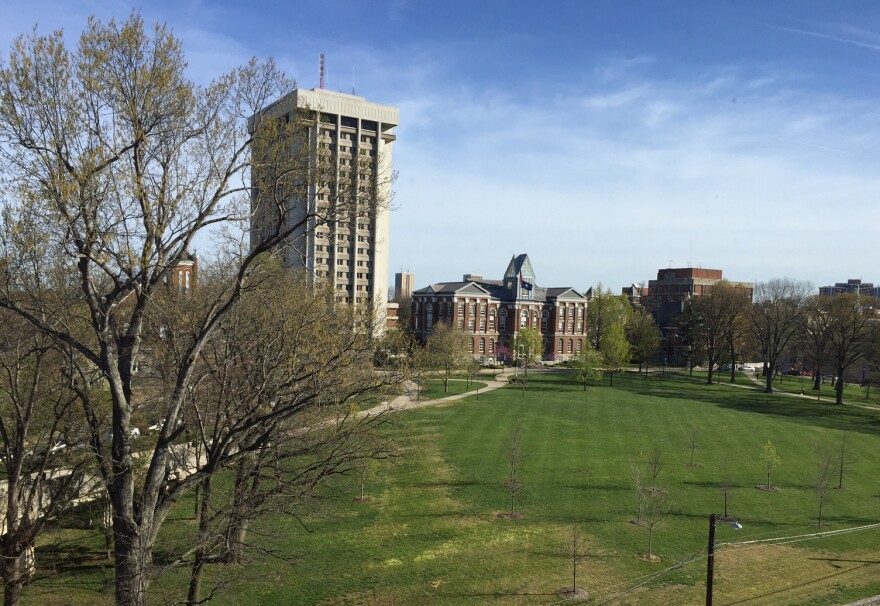When it comes to the state’s new higher education funding system, the head of the state's Council on Postsecondary Education says the University of Kentucky is leading the pack — but meeting benchmarks isn't enough to offset state cuts.
Kentucky is one of a handful of states still dealing out cuts to higher education in the wake of the 2008 recession. It’s also phasing in what’s known as “performance-based funding,” which allots a percentage of state dollars based on how well schools perform on a series of metrics.
In the commonwealth, the model gives more weight to universities and colleges that boost enrollment and retention numbers, increase graduation rates with an emphasis on underserved populations, and a meet other student measures.
And on those scores, the school is making headway.
"We were the only university that performed above average in every one of those and certainly we garnered the most funding in this first year," says UK President Eli Capilouto. "And that's because of a laser focus on student success."
The university was cut by about $17.8 million in last year’s budget but won back roughly $9.1 million in performance-based funding, leaving a net decrease of $8.7 million.
Despite the university’s early success, Capilouto says the model is imperfect and needs time to set in.
"It needs to endure a while. You can't keep changing the goal line and the goalpost and expect to have a credible model for people to respond," he tells WUKY.
Capilouto joined other university presidents in Frankfort Thursday for a committee update on schools' strategies and progress toward aligning their programs with the new system.







